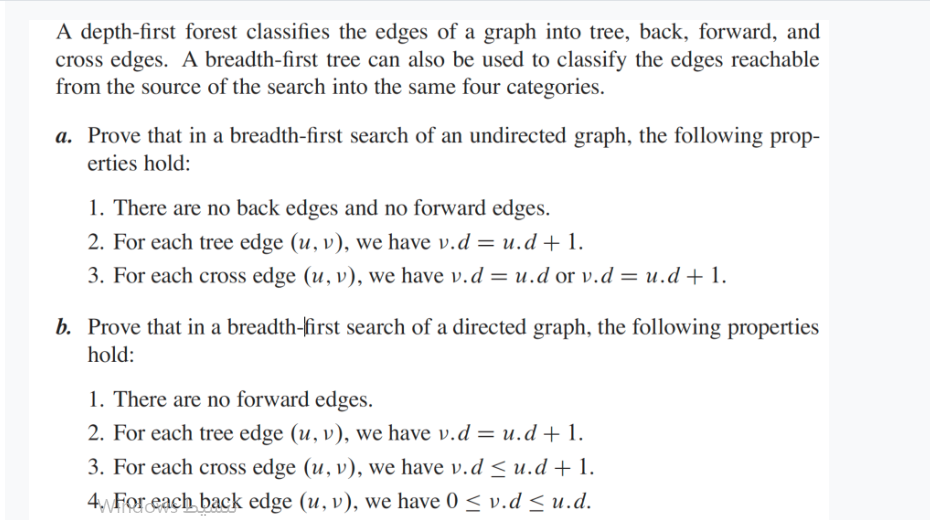Answered step by step
Verified Expert Solution
Question
1 Approved Answer
A depth - first forest classifies the edges of a graph into tree, back, forward, and cross edges. A breadth - first tree can also
A depthfirst forest classifies the edges of a graph into tree, back, forward, and
cross edges. A breadthfirst tree can also be used to classify the edges reachable
from the source of the search into the same four categories.
a Prove that in a breadthfirst search of an undirected graph, the following prop
erties hold:
There are no back edges and no forward edges.
For each tree edge we have
For each cross edge we have or
b Prove that in a breadthfirst search of a directed graph, the following properties
hold:
There are no forward edges.
For each tree edge we have
For each cross edge we have
For each back edge we have

Step by Step Solution
There are 3 Steps involved in it
Step: 1

Get Instant Access to Expert-Tailored Solutions
See step-by-step solutions with expert insights and AI powered tools for academic success
Step: 2

Step: 3

Ace Your Homework with AI
Get the answers you need in no time with our AI-driven, step-by-step assistance
Get Started


